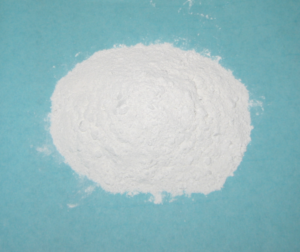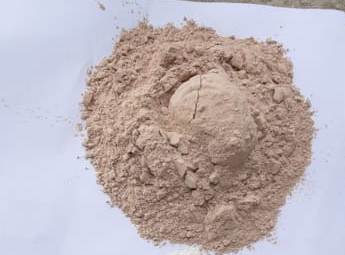Understanding Its Safety and Uses
Barite powder, widely used in industries ranging from oil drilling to manufacturing, is often questioned for its safety. Derived from the mineral barite (barium sulfate), it is known for its high density and inertness. However, concerns about its toxicity arise, especially because barium, the core element of barite, can be hazardous in certain forms. In this article, we explore the safety profile of barite powder, its potential risks, and safe industrial applications.

What is Barite Powder?
1. Non-Toxic Nature of Barite (Barium Sulfate)
Barite powder is primarily composed of barium sulfate (BaSO₄), a naturally occurring mineral. While barium in its pure form can be toxic, barium sulfate is chemically inert, meaning it doesn’t dissolve in water or react with other substances. This lack of reactivity is what makes barite powder non-toxic and safe for a wide variety of uses, particularly in industries that require contact with people, such as medical imaging and pharmaceuticals.
https://iranmineral.net/iran-barite-suppliers/
2. Physical and Chemical Properties
Barite powder is valued for its high density, non-reactive nature, and whiteness. It is often used as a filler in various products, from paints and plastics to rubber and paper. Due to its inert nature, it does not pose the same toxicity risks as soluble forms of barium, such as barium salts.
Is Barite Powder Toxic?
1. Barium Sulfate vs. Soluble Barium Compounds
The concern around barite powder’s toxicity typically stems from confusion with other barium compounds. While soluble barium compounds, like barium chloride and barium carbonate, are toxic and can lead to severe health issues if ingested or inhaled, barium sulfate is entirely different.
Why is Barium Sulfate Safe?
- Insolubility: Barium sulfate is not soluble in water, which means it does not release harmful barium ions when used in applications.
- Low Absorption: Even if ingested or inhaled, barium sulfate passes through the body without being absorbed, making it safe for use in products like medical imaging contrast agents and cosmetics.
2. Health Considerations in Industrial Use
Although barite powder is generally non-toxic, it’s essential to handle it correctly, especially in industrial settings where dust inhalation can occur. Inhaling fine particles of any kind, including barite powder, can cause irritation to the respiratory tract.
Safety Measures for Handling Barite Powder:
- Dust Control: Use protective equipment such as masks or respirators to prevent inhaling fine particles.
- Proper Ventilation: Ensure adequate ventilation in areas where barite powder is handled, particularly during drilling or manufacturing processes.
- Regular Monitoring: Monitor air quality to ensure compliance with occupational safety standards.
Safe Applications of Barite Powder
1. Oil and Gas Drilling
Barite powder is a critical component in drilling fluids used in the oil and gas industry. It increases the density of drilling mud, helping to control pressure in wells. Since barium sulfate is non-toxic, it can be safely used in large quantities without environmental concerns.
2. Medical Imaging
One of the safest and most widespread uses of barite powder is in medical imaging. Barium sulfate is used as a contrast agent for X-rays and CT scans of the digestive system. Since it doesn’t dissolve or absorb into the body, it provides clear imaging while posing no risk to the patient.
3. Cosmetics and Skincare
Barite powder is also found in various cosmetics and skincare products. Its smooth texture and non-toxic nature make it ideal for products such as foundations, powders, and sunscreens. It provides a natural brightness without causing harm to the skin.

